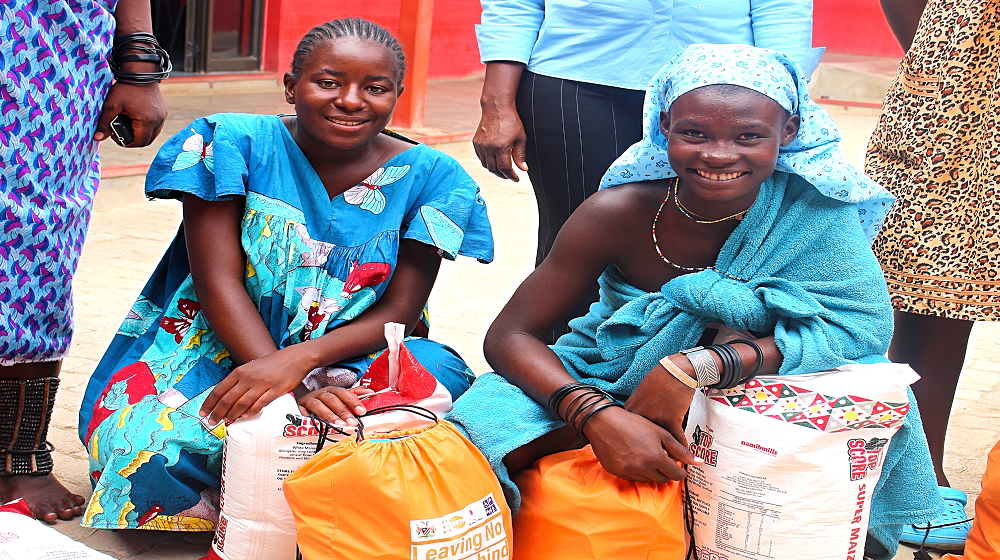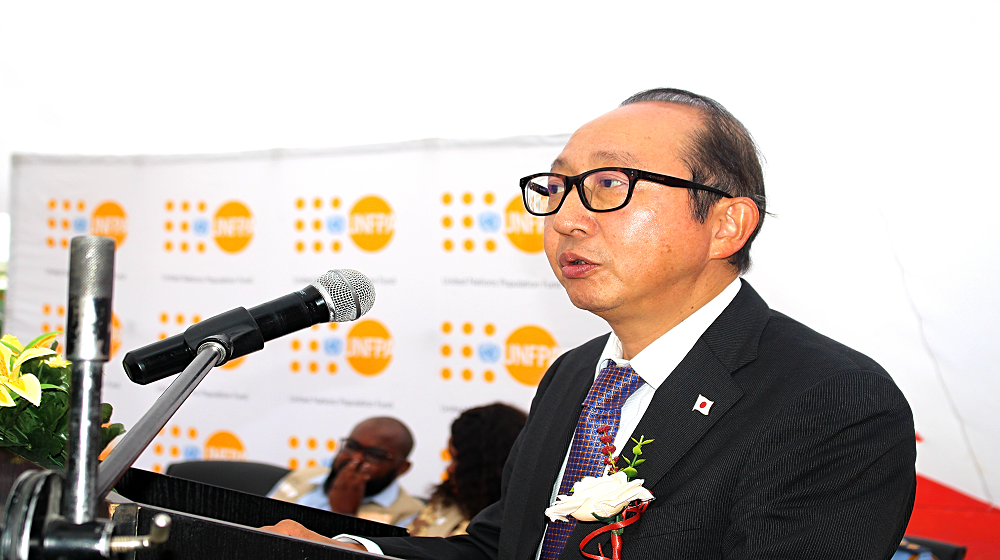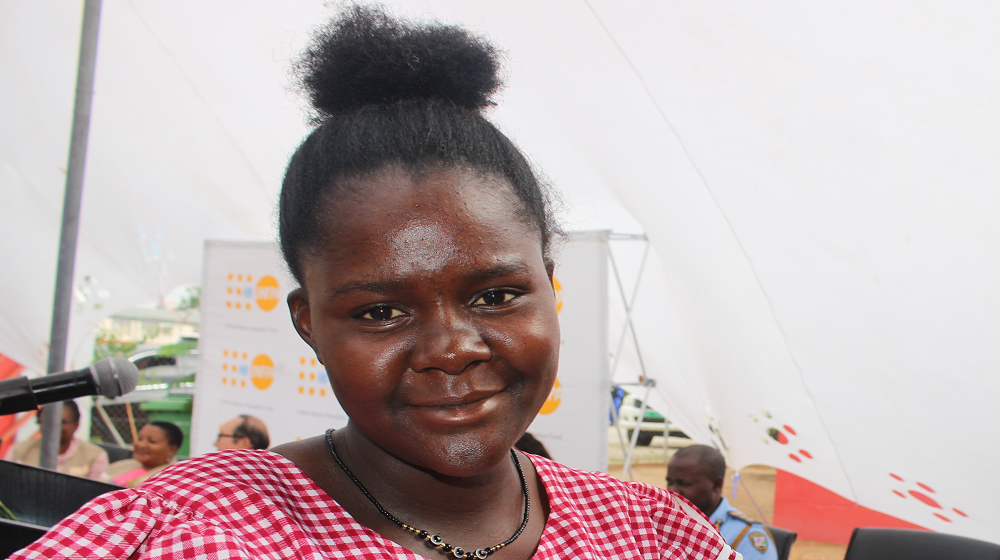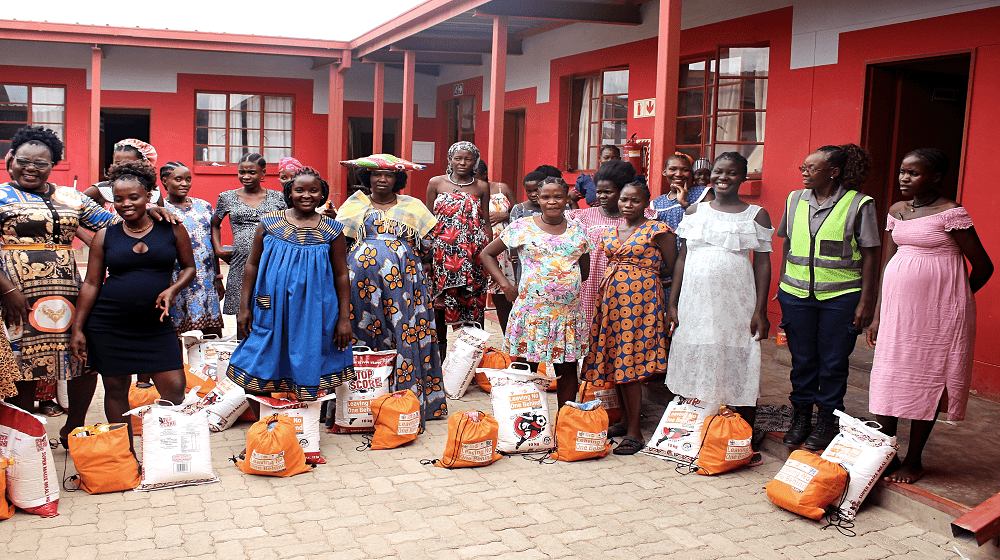
OPUWO, Namibia — “Before, we didn’t have enough chairs and tables, and we would eat sitting on the ground or on our beds. Now we will be more comfortable while we are staying here,” said Karikikuta van der Merve, an expectant mother at the Kazetjitindire Angelika Muharukhua Maternity Waiting Home in Opuwo.

The 18-year-old Karikikuta is one of many pregnant women who have to travel great distances to be accommodated at the maternity waiting shelter to be closer to the medical facility to give birth.

The Kunene region has the lowest hospital delivery rates in the country and the second-highest rate of teenage pregnancies (22.9%, behind Kavango West's 23.9%). Poor roads, lack of transportation, and distances of up to 100 km make it difficult for rural pregnant women to reach the hospital in time to give birth.
Karikikuta is from the village of Ehomba, which is about 170 kilometers outside of Opuwo, in the Epupa Constituency. She is due to give birth this month.
The Kazetjitindire Angelika Muharukhua Maternity Waiting Home was constructed in 2013 to enable expectant mothers to be near the District Hospital in Opuwo as their due date drew near. With a shared kitchen, dining room, bathroom, and meeting room, it was designed as a dormitory that can house up to 60 women.
"As expectant mothers, the Kunene region is blessed to have this maternity waiting house. It has improved maternal health outcomes and has kept so many pregnant women safe,” said Karikikuta.
Karikikuta was speaking on February 28, 2023, at a ceremony where the Japanese Embassy in Namibia and UNFPA Namibia presented furniture and kitchenware to the shelter.
Securing expectant mothers
The donated items included a double-door refrigerator, two industrial stoves, eight dining tables, 40 chairs, a stainless steel table with a shelf, 25 drinking jars, 25 blankets, 25 treated mosquito nets, and two sewing machines.
In addition, a dignity kit, two cans of fish, a 10 kg bag of maize meal, and one 750 ml bottle of cooking oil were each given to 55 pregnant women at the home, including Karikikuta. Each dignity kit contained essentials like vaseline, toothpaste, toothbrushes, face cloths, washing powder, bath soap, two sanitary pads, underwear, malong, and torches that women need to maintain their hygiene, respect, and dignity.
The donation was made possible by the Leaving No One Behind Project, which is implemented by UNFPA in eight regions of Namibia, including Omaheke, and funded by the Japanese government.
Our aim is clear that we would like to secure the pregnant women by delivering basic items and nutritional food so that we can strengthen the dignity and confidence of pregnant women in Namibia.
"Our aim is clear that we would like to secure the pregnant women by delivering basic items and nutritional food so that we can strengthen the dignity and confidence of pregnant women in Namibia," said the Ambassador of Japan to Namibia, H.E. Hisao Nishimaki during the handover ceremony.
H.E. Nishimaki asserted that his government is committed to the commitments it made at the 8th Tokyo International Conference on African Development (TICAD8), which was held in August 2022. At that time, Japan committed to bolstering African Countries' healthcare and medical systems in order to achieve Universal Health Coverage (UHC) and to supporting initiatives pertaining to sexual and reproductive health in order to make every pregnancy and delivery desirable and safe.
“I am privileged to announce today that the said commitment made during TICAD8 and now yielding results that are seen on a grass-roots level through the Leaving No One Behind Project,” he stated.
The Leaving No One Behind Project focuses on those who have been left out the most, such as vulnerable women and girls, particularly those who live with disabilities, pregnant and nursing women, in- and out-of-school youth, and other groups susceptible to sexual and gender-based violence. It also serves as an emergency response intervention in the context of COVID-19.
Ending preventable maternal deaths and gender-based violence are not only human rights issues; they are also essential to the achievement of national priorities and the Sustainable Development Goals.
Ending preventable maternal deaths and gender-based violence are not only human rights issues; they are also essential to the achievement of national priorities and the Sustainable Development Goals, according to Ms. Gift Malunga, the UNFPA Namibia Representative ad interim.
"Maternal mortality is 210 deaths per 100,000 live births. We all know that most of these deaths are preventable.” The proximity of the maternity waiting home to the hospital facilitates timely interventions when complications of pregnancy and delivery occur.”
According to her, Namibia needs assistance that will increase pregnant women's self-worth and confidence, lessen their susceptibility to risks related to GBV and sexual and reproductive health, and enable them to meet their basic needs while acquiring long-term livelihood skills that will increase family income and overall well-being.
Fully equipped
Hon. Dr. Esther Muinjangue, the Deputy Minister of Health, thanked the Government of Japan and UNFPA for the donation and encouraged expectant mothers to use these facilities without fail now that they will have a fully furnished, cutting-edge maternity waiting home. "This is critical not only for service delivery but also for promoting pregnancy outcomes."
In a similar vein to the Deputy Minister, the Governor of Kunene Region, Hon. Marius Sheya, thanked the Embassy of Japan in Namibia and UNFPA for the donation and said that it will go a long way toward helping pregnant women who are in need of services at the shelter.
A future president or engineer could be born here, so we need to take good care of the shelter.
"The Angelika Muharukua Maternity Waiting shelter has always been close to my heart, we have now fully equipped this facility to be a friendly and productive place for our expecting mothers,” he stated.
“A future president or engineer could be born here, so we need to take good care of the shelter,” the governor and local officials vowed to maintain the facility for future generations.


